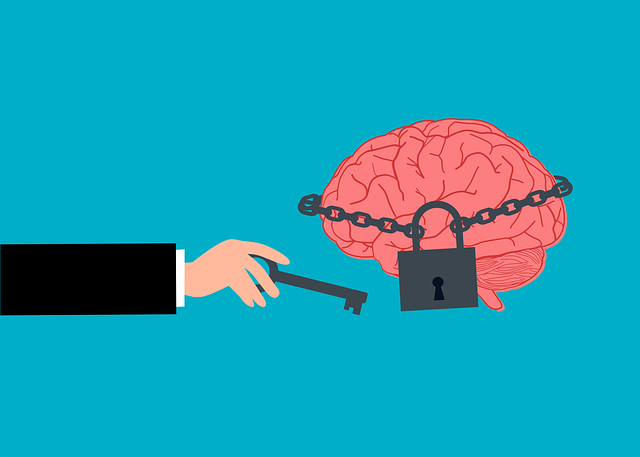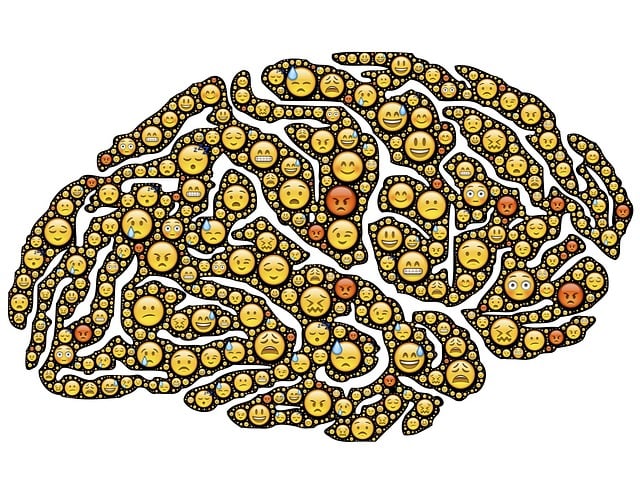“Explore powerful mood regulation strategies to enhance your emotional well-being. This comprehensive guide delves into various techniques, from cognitive therapies like the Broomfield Hebrew Speaking Therapy Approach, which targets thought patterns, to mindfulness practices and lifestyle adjustments. Learn how nutrition, exercise, and sleep play a pivotal role in emotional balance. Additionally, discover the benefits of professional support and community resources for managing moods effectively.”
- Understanding Mood Regulation: The Role of Emotional Intelligence
- Cognitive Techniques for Better Mood Management (Broomfield Hebrew Speaking Therapy Approach)
- Mindfulness and Meditation Practices for Daily Mood Enhancement
- Lifestyle Adjustments: Nutrition, Exercise, and Sleep for Emotional Balance
- Seeking Support: Professional Help and Community Resources
Understanding Mood Regulation: The Role of Emotional Intelligence

Understanding Mood regulation is a multifaceted process that intertwines with our emotional intelligence. Emotional Intelligence (EI), as studied by professionals at Broomfield Hebrew Speaking Therapy, refers to our ability to recognize, understand, and manage our own emotions, as well as empathize with others’ feelings. This crucial skill plays a pivotal role in navigating and regulating moods effectively. By enhancing EI, individuals can better discern emotional triggers, develop healthier coping mechanisms, and foster more adaptive behaviors when facing challenging situations.
The process of mood regulation involves intricate emotional healing processes that require mindfulness, self-awareness, and a deep understanding of one’s unique emotional landscape. Risk assessment for mental health professionals guides the formulation of personalized strategies, ensuring client safety while fostering growth. Furthermore, establishing a robust Self-Care Routine Development for Better Mental Health acts as a shield against overwhelming emotions, promoting resilience and overall well-being.
Cognitive Techniques for Better Mood Management (Broomfield Hebrew Speaking Therapy Approach)

The Broomfield Hebrew Speaking Therapy Approach offers powerful cognitive techniques for individuals seeking better mood management. This innovative therapy encourages clients to explore and challenge negative thought patterns, which significantly impacts their emotional well-being. By identifying and reframing distorted cognitions, individuals gain a fresh perspective on their feelings, leading to improved mood regulation.
This approach integrates various strategies, such as cognitive restructuring and mindfulness meditation, to help individuals develop emotional resilience. Through guided exercises, clients learn to stay present and observe their thoughts without judgment. Combining these techniques with the support of a trained therapist enables people to navigate through life’s challenges, fostering a sense of calm and enhancing overall mood management skills.
Mindfulness and Meditation Practices for Daily Mood Enhancement

Mindfulness and meditation practices have emerged as powerful tools for daily mood enhancement, offering individuals a way to cultivate mental wellness and positive thinking. These ancient techniques, often incorporated into Broomfield Hebrew Speaking Therapy, encourage individuals to focus on the present moment without judgment. By doing so, they can reduce stress, anxiety, and depressive symptoms, fostering a sense of calm and emotional balance.
Regular self-care practices, such as mindful breathing exercises and meditation, have been shown to strengthen one’s ability to regulate emotions effectively. This, in turn, enhances overall mental wellness and promotes positive thinking patterns. Incorporating these practices into daily routines can create a sense of sanctuary from the hustle and bustle of life, allowing individuals to reconnect with their inner selves and cultivate resilience.
Lifestyle Adjustments: Nutrition, Exercise, and Sleep for Emotional Balance

Seeking Support: Professional Help and Community Resources










